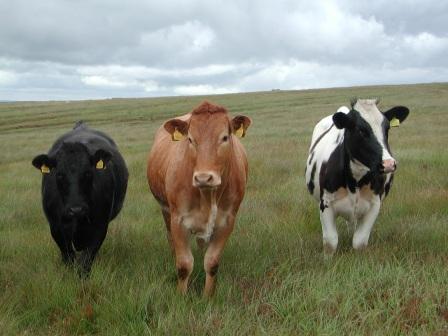
by: Linda Breazeale
MSU Ag Communications
First appeared on Cattle Today
Mississippi State – Old West days are long gone, but cattle producers still need to take steps to prevent the theft of livestock by modern-day cattle rustlers.
John Michael Riley, agricultural economist with Mississippi State University’s Extension Service, said cattle prices have been high during most of 2011, with record-high prices last spring.
“As the value of the cattle increases, so does the incentive for theft,” Riley said. “Cattle producers need to be careful how they conduct business, which includes knowing the buyer or seller is honest and has a good reputation.”
Texas recently sentenced a man with a lengthy history of cattle theft to 99 years in prison for stealing 400 cattle, worth more than $200,000, from an Oktibbeha County rancher. Using a fake name and cattle company, Carl Wade Curry arranged to “buy” the cattle but never sent payment.
Robert Jordan, director of the Mississippi Agricultural and Livestock Theft Bureau, said an average of about 250 head of Mississippi livestock are stolen each year, mostly cattle, but also some horses.
“Theft incidences increase during the winter months when animals are more responsive to feed buckets,” he said. “Thefts are most often in remote areas with easy access. Occasionally, (thieves) will cut a fence and bring panels to round up the animals, but they are usually in pastures with a catch pen handy.”
Jordan said law enforcement may be able to relocate about half of the stolen animals.
“The vast majority of stolen cattle are not branded and are hard to identify,” he said.
Jane Parish, beef cattle specialist with MSU’s Extension Service, said keeping good records and having methods of identifying cattle are the best ways to prevent theft.
“Because ear tags can be cut out, tattoos or brands are common permanent methods for marking ownership, especially with registered animals,” she said. “Freeze brands are recommended because they are less stressful on the animals. The Extension Service has a freeze branding publication for cattle producers wanting more information.”
Parish said after Hurricane Katrina damaged so many fences, many cattle producers relied on photos to support ownership claims.
“Most cattle rustlers are going to look for easy targets, such as cattle kept in secluded areas with minimal supervision or gates without locks,” she said. “Producers protect their herds with vaccines, but they should not stop there.”
Parish said communication with local law enforcement, neighbors and other producers is important in keeping animals secure.
The MSU Extension publication “Freeze Branding Beef Cattle” can be found HERE.
